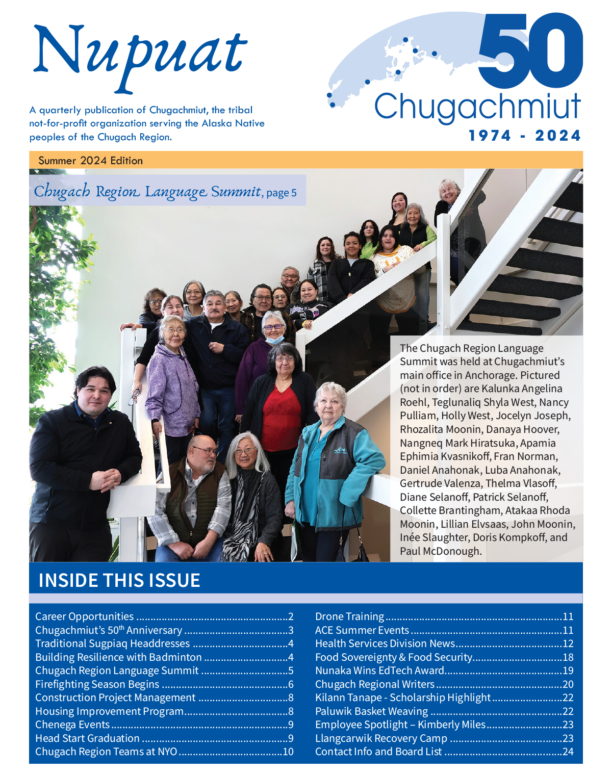Explore this week’s Money Monday Funding Opportunities newsletter from the Chugachmiut Grant Department for July 22! Discover the latest grant opportunities available. If you find a grant you’d like to pursue, please get in touch with us at grants@chugachmiut.org or (907) 562-4155.
MONEY MONDAY NEWSLETTER
NOTE: Grants listed below are at least 6 weeks away from deadline to allow adequate time to prepare an application. If you see a grant you would like to pursue or want more information, email us at grants@chugachmiut.org.
COMMUNITY INFRASTRUCTURE
Reconnecting Communities Pilot (RCP) Program
Department of Transportation
DEADLINE: Sept. 30, 2024
AWARDS: Up to $100,000,000; match required — 20% for planning grants and 50% for capital construction
ELIGIBILITY: Native American tribal organizations (Federally recognized AND other than Federally recognized tribal governments), nonprofits, local and state governments, institutions of higher education
The RCP Program aims to advance and support reconnection of communities divided by transportation infrastructure – with a priority on helping disadvantaged communities improve access to daily needs (jobs, schools, healthcare, grocery stores, and recreation). Funds for the fiscal years (FY) 2024, 2025, and 2026 RCP grant program are to be awarded on a competitive basis to support planning and capital construction activities that aim to restore community connectivity through the removal, retrofit, mitigation or replacement of highways, roadways, or other infrastructure facilities that create barriers to mobility, access or economic development. Bipartisan Infrastructure Law specifies that the maximum Community Planning Grant award funded with RCP funds is $2 million and that the minimum Capital Construction Grant award funded with RCP funds is $5 million. (Link to grants.gov synopsis here.)
Environmental and Climate Justice Community Change Grants Program
Environmental Protection Agency
DEADLINE: Nov. 21, 2024
AWARDS: Track I grants are expected to be $10-$20 million; Track II grants are expected to be $1-$3 million each. No match.
ELIGIBILITY: To be eligible, applicants must be a partnership between two community-based nonprofit organizations or a partnership between a CBO and one of the following: a federally recognized Tribe, a local government, or an institution of higher education.
The Environmental and Climate Justice Community Change Grant program (Community Change Grants) will fund community-driven projects that address climate challenges and reduce pollution while strengthening communities through thoughtful implementation. The EPA will consider applications under two separate tracks:
• Track I applications – Community-Driven Investments for Change will focus on multi-faceted applications with Climate Action and Pollution Reduction Strategies to meaningfully improve the environmental, climate, and resilience conditions affecting disadvantaged communities. Awards under Track I are expected to be $10-20 million each and cannot exceed $20 million. Examples of projects include Green infrastructure development, Energy efficient housing, Microgrid installation, disaster preparedness “community resilience hubs,” landfill work, workforce development, and more.
• Track II applications – Meaningful Engagement for Equitable Governance will facilitate the engagement of disadvantaged communities in governmental processes to advance environmental and climate justice. Awards under Track II are expected to be $1-3 million each. Track II applications should focus on breaking down systemic barriers to community participation in government processes impacting environmental and climate justice. This can be done by creating engagement and feedback mechanisms with two-way communications between community members and government decision-makers. Applications should focus on ways to provide disadvantaged communities with information about issues that directly impact them, while simultaneously creating mechanisms for the government to gather input to ensure community needs inform decision-making and are integrated into government processes and policies. (Link to grants.gov synopsis here.)
Home Electrification and Appliance Rebates Program for Indian Tribes
State and Community Energy Programs (SCEP) Inflation Reduction Act of 2022 Home Energy Rebates, U.S. Department of Energy, State and Community Program, Golden Field Office
DEADLINE: Rolling and open until May 31, 2025
AWARDS: Allocated by formula
ELIGIBILITY: Native American tribal governments (both federally recognized and other than federally recognized), non-profits, other
Eligibility: Indian tribes, a consortium of tribes or a tribally authorized third party agent
The U.S. Department of Energy’s Office of State and Community Energy Programs has up to $225 million to grant to Tribal governments and Alaska Native entities for Home Electrification and Appliance Rebates. This program will provide up to $14,000 per eligible household for energy efficiency and electrification home upgrades. It’s recommended to submit letter of intent to apply by May 15, 2024. To learn more information about the program and see a list of allocations, visit https://shorturl.at/mtBLX.
NATURAL RESOURCES
Community Roots Program – The Arbor Day Foundation (ADF)
DEADLINE: September 30, 2024
AWARD: $100,000-$1,000,000; no match or cost share required.
ELIGIBILITY: Federally recognized Tribes, Alaska Native Corporations / villages, Tribal organizations as defined in 25USC 5304 (I) and operating within the United States or its territories, and organizations working in Tribal communities.
Through this opportunity, the Arbor Day Foundation aims to support investment in tree planting and maintenance, planning, and capacity building, led by the unique needs, knowledge, and ambitions of individual Tribal subawardees. Recipients will have access to a cohort of peers and experts within the Arbor Day Foundation and the Urban and Community Forestry Society (UCFS)’s networks and the opportunity to connect with mentors/coaches from around the nation. Subawardees will also be invited to attend the annual Partners in Community Forestry conference to further develop their urban forestry network.
The Period of Performance for this opportunity will start no later than December 6, 2024, and must be completed by December 3, 2027. No-cost extensions may be available if needed and with approval for an additional 6 months. Community Roots Program RFA | Tribes (arborday.org)
National Fish Passage Program Base Funding Fiscal Year 2024
Department of the Interior, Fish and Wildlife Service
DEADLINE: Applications may be submitted continuously between March 1, 2024, and December 31, 2024
AWARD: $500-$1,000,000; no match
ELIGIBILITY: Native American tribal organizations (other than Federally recognized tribal governments), Native American tribal governments (Federally recognized) State governments, County governments, institutions of higher education, school districts, others
The National Fish Passage Program (NFPP) is a voluntary program that provides direct technical and financial assistance to partners to remove instream barriers and restore aquatic organism passage and aquatic connectivity for the benefit of Federal trust resources. Activities proposed under this award may include project planning and feasibility studies, engineering and design, permitting, on-the-ground fish passage restoration, near-term implementation monitoring, project outreach, and capacity to manage these project-related activities. (Link to grants.gov synopsis here.)
Composting and Food Waste Reduction (CFWR) Pilot Project
Department of Agriculture, Natural Resources Conservation Service
DEADLINE: Sept. 4, 2024
AWARD: $75,000-$400,000; 25% match
ELIGIBILITY: Native American tribal governments (Federally recognized AND other than Federally recognized tribal governments), housing authorities, school districts, local governments
This program provides financial assistance to projects that carry out food waste reduction and composting objectives. The goals and objectives of this program include: reducing food waste, generating compost, improving soil quality, increasing rainwater utilization (capture, infiltration, or absorption). (Link to grants.gov synopsis here.)
Alaska Good Neighbor Authority
Department of the Interior, Bureau of Land Management
DEADLINE: Oct. 18, 2024
AWARD: $5,000-$750,000; no match
ELIGIBILITY: Native American tribal governments (Federally recognized AND other than Federally recognized tribal governments), state and county governments
The Good Neighbor Authority (GNA) is intended to facilitate partnerships with states, counties, and federally recognized Indian tribes to plan and implement forest, rangeland, and watershed restoration projects. The GNA authority specifically authorizes noxious weeds and invasive species treatments; treating insect-and disease-infested trees; reducing hazardous fuels; any other activities to restore or improve forest, rangeland, and watershed health, including fish and wildlife habitat. (Link to grants.gov synopsis here.)
LANGUAGE & CULTURE
Forecast: Climate Smart Humanities Organizations
National Endowment for the Humanities
DEADLINE: Sept. 12, 2024 (estimated)
AWARD: Up to $300,000; 1:1 match required
ELIGIBILITY: Native American tribal governments (Federally recognized), nonprofits, state, town and city governments, and more.
The Climate Smart Humanities Organizations program supports comprehensive assessment and strategic planning efforts by humanities organizations to mitigate physical and operational environmental impacts and adapt to a changing climate. Projects will result in climate action and adaptation planning documents or similar detailed assessments including prioritized, measurable actions and their expected outcomes. Full funding announcement expected in June 2024. (Link here for full list and synopsis.)
Summer Stipends
National Endowment for the Humanities
DEADLINE: Sept. 18, 2024
AWARD: $8,000; no match
ELIGIBILITY: Individuals
The purpose of this program is to stimulate new research and publication in the humanities. Summer Stipends support continuous, full-time work on a humanities project for a period of two consecutive months. NEH funds may support recipients’ compensation, travel, and other costs related to the proposed scholarly research. (Link here for full list and synopsis.)
Laura Bush 21st Century Librarian Program
Institute of Museum and Library Services
DEADLINE: Sept. 20, 2024
AWARD: $25,000-$1,000,000; Requests of more than $249,999 in IMLS funds require at least 1:1 cost share from non-federal sources.
ELIGIBILITY: a unit of State, local, or Tribal government; or a private, nonprofit organization that has nonprofit status under the Internal Revenue Code of 1954, as amended (if you’re submitting a Phase II – Invited Full Proposal, you’ll need to include proof of this if applicable to your organization.
The mission of the Institute of Museum and Library Services (IMLS) is to advance, support, and empower America’s museums, libraries, and related organizations through grantmaking, research, and policy development.
Projects can support the recruitment, training, education, and retention of pre-professionals, students, faculty, and the current library archives workforce.
Publishing Historical Records Collaborative Digital Editions
National Archives and Records Administration
DEADLINE: Nov. 2, 2024
AWARD: Up to $125,000 with match
ELIGIBILITY: Native American tribal governments (Federally recognized), nonprofits, state governments, institutions of higher education, others.
The National Historical Publications and Records Commission seeks proposals to publish online editions of historical records. All types of historical records are eligible, including documents, photographs, born-digital records, and analog audio. Projects may focus on broad historical movements in U.S. history, including any aspect of African American, Asian American, Hispanic American, and Native American history, such as law (including the social and cultural history of the law), politics, social reform, business, military, the arts, and other aspects of the national experience. Projects that center the voices and document the history of Black, Indigenous, and People of Color are especially welcomed. (Link here for full list and synopsis.)
Archival Projects
National Archives and Records Administration
DEADLINE: Nov. 7, 2024
AWARDS: Up to $150,000; 25% match required
ELIGIBILITY: Native American tribal governments (Federally recognized only), non-profits, state and local governments, institutions of higher education
The NHPRC seeks archival projects that will significantly improve online public discovery and use of historical records collections. We welcome projects that engage the public, expand civic education, and promote understanding of the nation’s history, democracy, and culture from the founding era to the present day. The Commission encourages projects focused on collections of America’s early legal records, such as the records of colonial, territorial, county, and early statehood and tribal proceedings that document the evolution of the nation’s legal history. (Link here for full list and synopsis.)
ABOUT THE MONEY MONDAY NEWSLETTER
The Money Monday newsletter is a weekly publication by the Chugachmiut Grants Department that highlights funding opportunities that may be relevant to tribes in the Chugach Region. Subscribe by contacting us at grants@chugachmiut.org. You can also download the newsletter at chugachmiut.org or check out our Facebook page.



